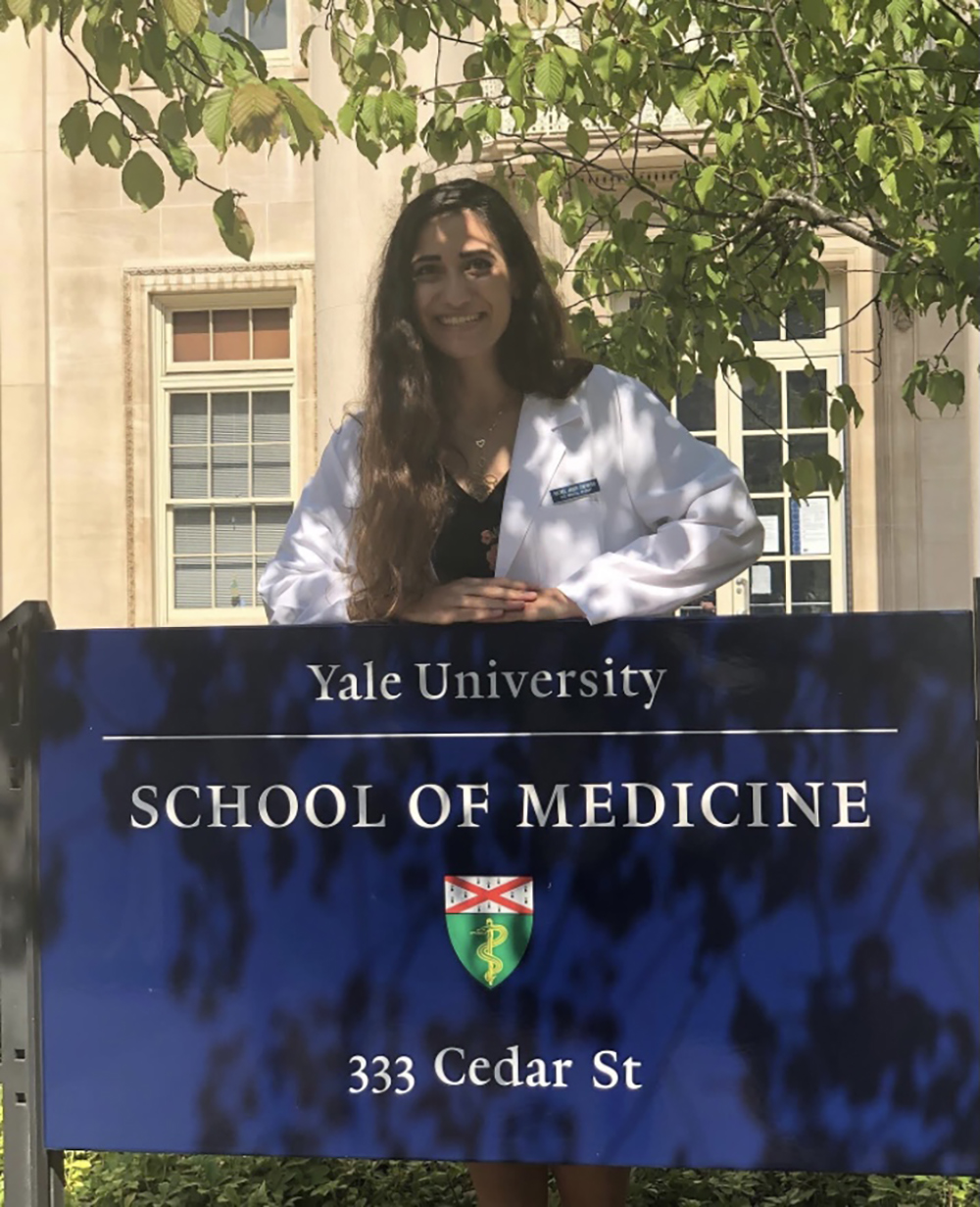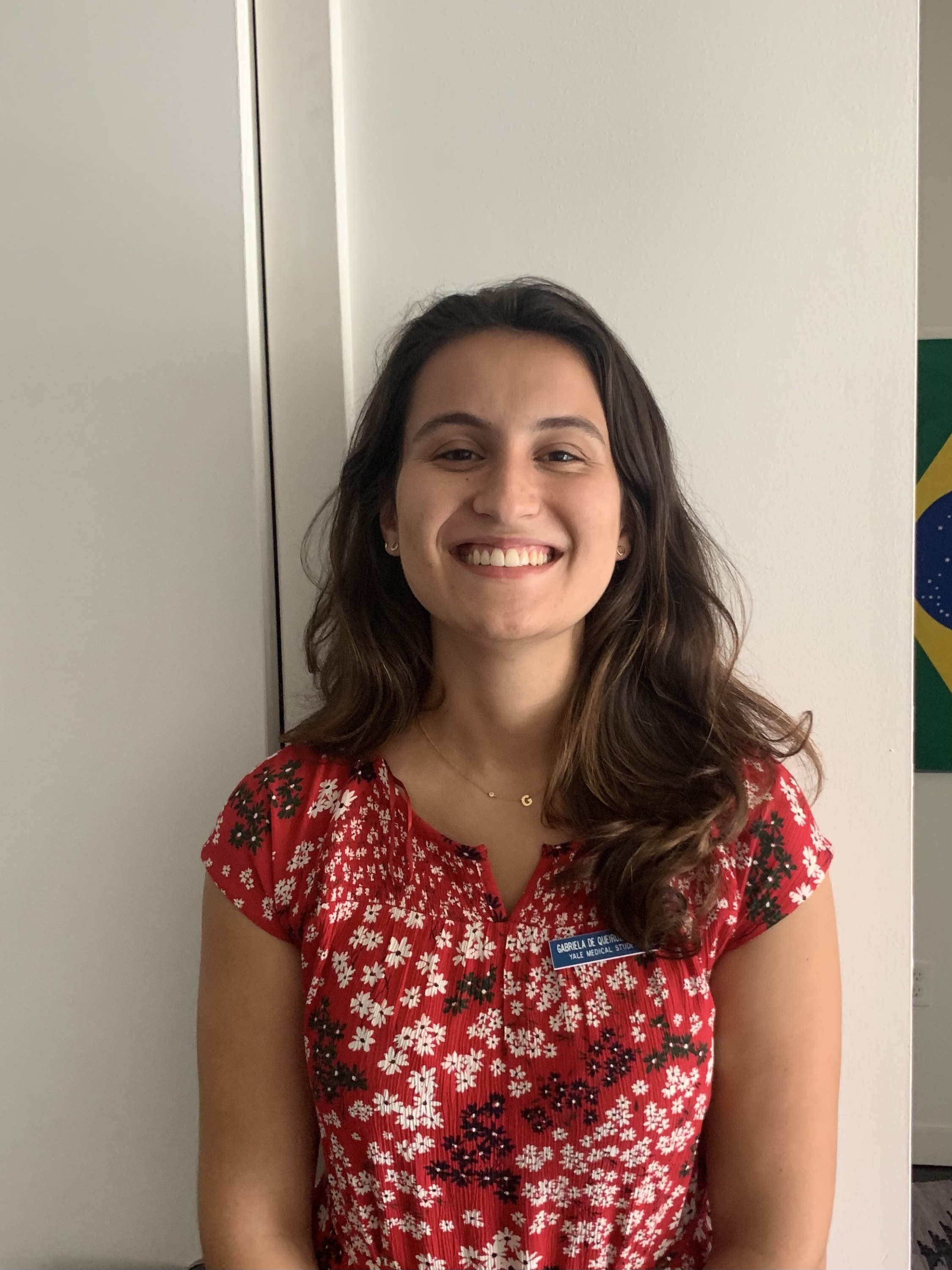Rachel Jaber Chehayeb wanted to stay in the U.S. to attend medical school after graduating from Yale College, but she knew it would be difficult. As a Lebanese citizen, she would have to navigate visa requirements and loans without nearby family or a ready support network. “I only knew of one person who had done it,” said Chehayeb, a first-year medical student at Yale School of Medicine. “There was not a community of international medical students.”

But, Chehayeb said, she was drawn to the flexibility of the YSM curriculum, and the way it infused humanities, ethics, and patient-centered care. “Being here for medical school gives me time to grow, explore, do research, and customize my medical education to my interests,” she said.
So Chehayeb stayed and helped build the network she lacked — joining forces with other international medical students at Yale to run F-1 Doctors, an initiative that improves the visibility of international students in U.S. medical schools, connects these students with mentors, and provides resources for international students applying to health professional schools. Students learn which schools accept international students, how to apply and interview, how to finance their education, and how to navigate visa requirements.
“I promised myself that I would help ensure that the next generation of immigrant doctors wouldn’t face the same struggles I did,” Chehayeb said.
Since it launched last year by founders Azan Virji from Tanzania, Ghazal Aghagoli, from Iran and Canada, and Ben Gallo Marin from Nicaragua, F-1 Doctors now has over 100 mentors from over 30 countries representing MD, MD/PhD, DO, DMD and residency programs. They’ve helped over 400 students.
“It’s your responsibility as an international student to make sure everything is done correctly,” said Gabriela de Queiroz 
At Yale School of Medicine, international students account for 17% of MD students, 32% of MPH students, and 31% of PhD students in the sciences. These students are supported by the Office of International Students and Scholars (OISS).
Brian Fleischer, an MD candidate at Yale School of Medicine from Ghana said when the COVID-19 pandemic forced him to do his last semester in his home country, he relied on the support from OISS.
The program F-1 Doctors has an important role to play in creating the next generation of international health care leaders, Fleischer says. “Through this platform, we can talk about shared experiences in the U.S. medical system and start to build health care systems back home that reflect the modern system.”
Along with fourth-year Yale medical student Amy Thomas, Fleischer is running an online summer education program for international students called Yale Global Health Students United for Regional and Global Education (YGH SURGE). The series brings together health care, business, and law students from 15 countries to discuss case studies of global interest. It launched last year and focused on the impact of the COVID-19 pandemic and the necessity of international collaboration.
I promised myself that I would help ensure that the next generation of immigrant doctors wouldn’t face the same struggles I did.
Rachel Jaber Chehayeb
This summer, the focus will be on understanding and strengthening medical systems across the globe. “We’ll look at failures, at lessons that can be transferred, at the role of medical students,” said Fleischer. “We’ll learn how our educational training is different from colleagues in Ghana, Lebanon, and Brazil, and that appreciation is both humbling and informing.”